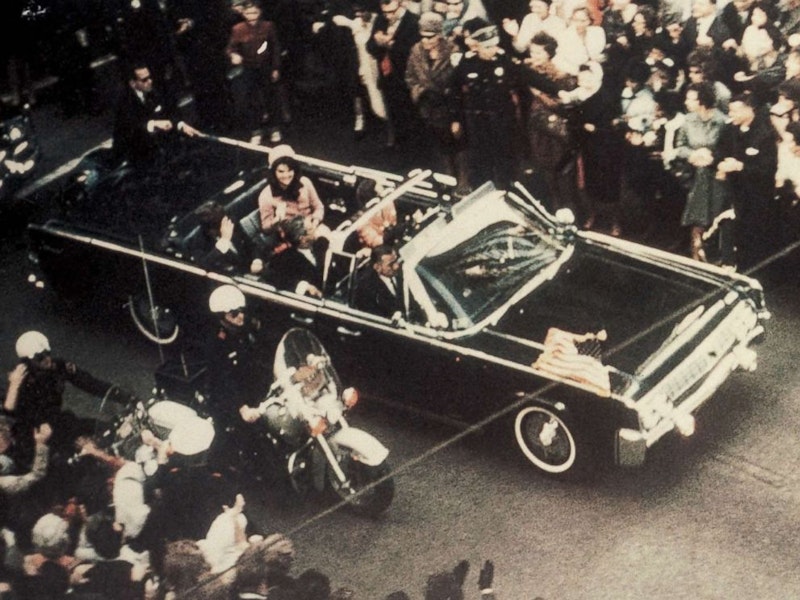I told my editor I’m ending strong. He put me through reviewing weasel Comey and then Jake Tapper. I need to finish with someone who knows how to write. No more D.C. hacks with no street smarts. No more insiders trying to make a buck trying to write tough. No more Comeys.
I told my editor: I’m going to finish it out with The Tears of Autumn.
The book came out in 1974, so it’s up for its 50th anniversary. It’s a work of high art that says more about what’s going on in the country now than today’s New York Times—in fact, much more. It’s about why Kennedy was killed, but it’s not the usual Oliver Stone claptrap. You don’t have to believe in the Deep State to think something fucked up was behind the entire thing. The Tears of Autumn offers a believable scenario.
I didn’t put the spoiler at the top because I didn’t want to give it away without a warning. I take a break from writing and leave the den to check in on Patti. We’re about to leave Baltimore for Charleston. She’s clean of her fentanyl jones and is looking great. We were going to go to Florida but she said there’s more art and culture in Charleston. She’s on the sofa reading Culture: The Story of Us, From Cave Art to K-Pop. She has an amazing body, more courage than most cops, and loves art. She wants to see the Dorothea Lange and Walker Evans photographs at the Gibbes museum.
"You okay, babe?” I say.
"You know,” she says, not looking up from the book, “The Iliad had a huge influence on everything.”
I let her read. Taste, art and wit were “back at the White House” when JFK arrived, according to one Kennedy sycophant in The Tears of Autumn. Unimpressed by the Camelot glitter is Charles McCarry’s protagonist, Paul Christopher. Christopher’s CIA and believes Kennedy was killed in retaliation for the CIA-backed coup that overthrew the regime of Ngo Dinh Diem in South Vietnam in 1963. In other words, JFK was slain by our former allies in Vietnam as revenge for Kennedy’s role in a coup. It’s late-November 1963 and Christopher’s on a quest to find out the truth. He discovers that through hubris and stupidity the Kennedy administration officials brought Kennedy’s killing on themselves—and then covered it up to preserve the myth of Camelot.
Sounds like Obama, who was a huge fraud.
There’s recently a book, The Lost Mandate of Heaven: The American Betrayal of Ngo Dinh Diem, President of Vietnam, and a documentary, arguing that the CIA taking out Diem—on November 2, 1963, just weeks before Kennedy fell—was a huge mistake. Diem was a devout Catholic, a nationalist, and the only effective bulwark against the communist. Yet with the help of JFK they killed him, leaving a vacuum from which Vietnam never recovered. They claimed he was autocratic and too harsh on deserters, particularly Buddhists, but compared to the commies he was Thomas Jefferson.
Paul Christopher knows this. One of Kennedy’s aides asks Christopher, “So what would you have us do? Nothing?” Christopher replies: “Sometimes that is the best thing to do.” He could've kept us out of Iraq and Afghanistan. Not to mention all the other frantic social justice five-year plans that bedazzle the left.
John le Carre gets all the critical love, probably because he was ambivalent about the superiority of the West. McCarry was in the CIA for 10 years, and the realism and melancholy that runs through his work may have something to do with some dirty and unsettling things he saw while working for “the agency.”
Christopher, the protagonist of most of McCarry’s novels, is a former poet, and his ruefulness about what he’s become, even as he understands how valuable he is to the United States, is often what elevates McCarry’s books from genre exercise to literature. (McCarry also once bailed me out of a Stasi honey trap, but that’s a different story.)
In the four decades since I first read The Tears of Autumn as a teenager in 1984, its opening passage has never left me. He describes a man who’s traumatized yet won’t give up on his search for the truth no matter what the loss:
Paul Christopher had been loved by two women who could not understand why he had stopped writing poetry. Cathy, his wife, imagined that some earlier girl had poisoned his gift. She became hysterical in bed, believing that she could draw the secret out of his body and in to her own, as venom is sucked from a snakebite. Christopher did not try and tell her the truth; she had no right to know it and could not have understood it. Cathy wanted nothing except a poem about herself. She wanted to watch their lovemaking in a sonnet. Christopher could not write it. She punished him with lovers and went back to America.
Nobody today writes like that. Our politicians are even worse. Taste, wit and culture aren’t back in the White House, but dementia, corruption and communism are. Like Christopher, I know the truth. I’m not sure it will make a difference. Sometimes a government, and a people are just bent on committing suicide. I survived them, but can’t make everyone else see the light.
Suddenly I hear a knock and look up. It’s Patti, naked, looking right at me. “A woman’s body is a work of art,” she says with a smile.
That’s something Paul Christopher, JFK and I can agree on.

